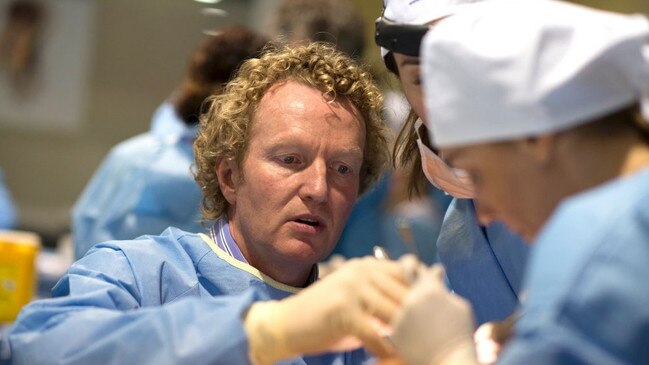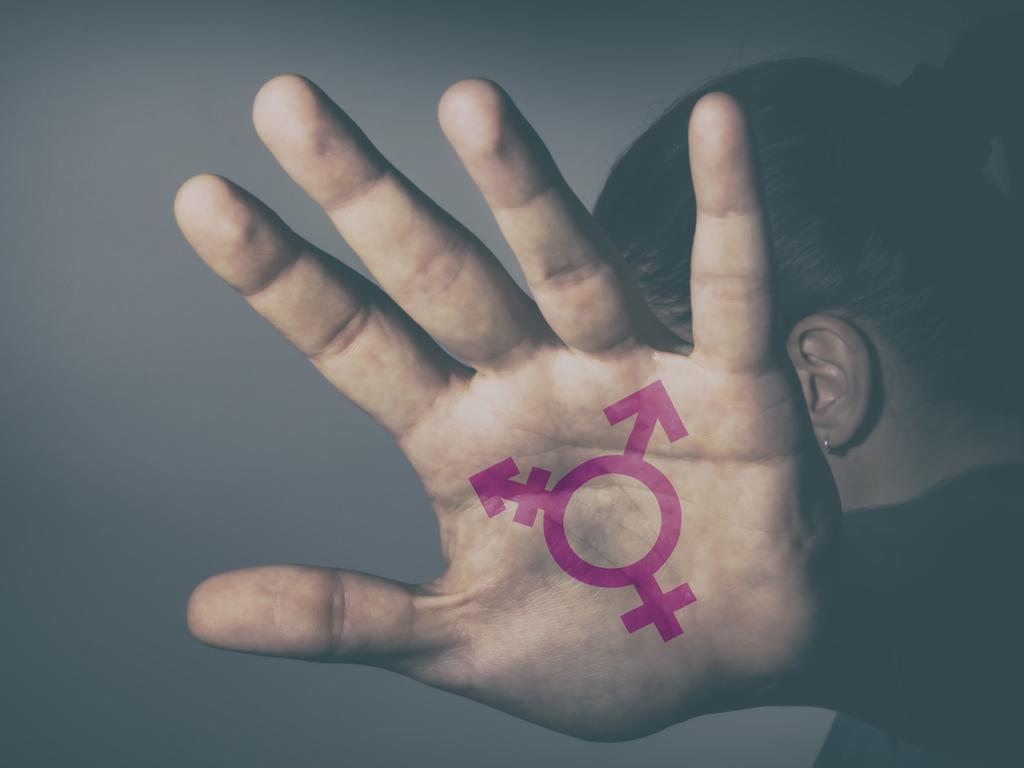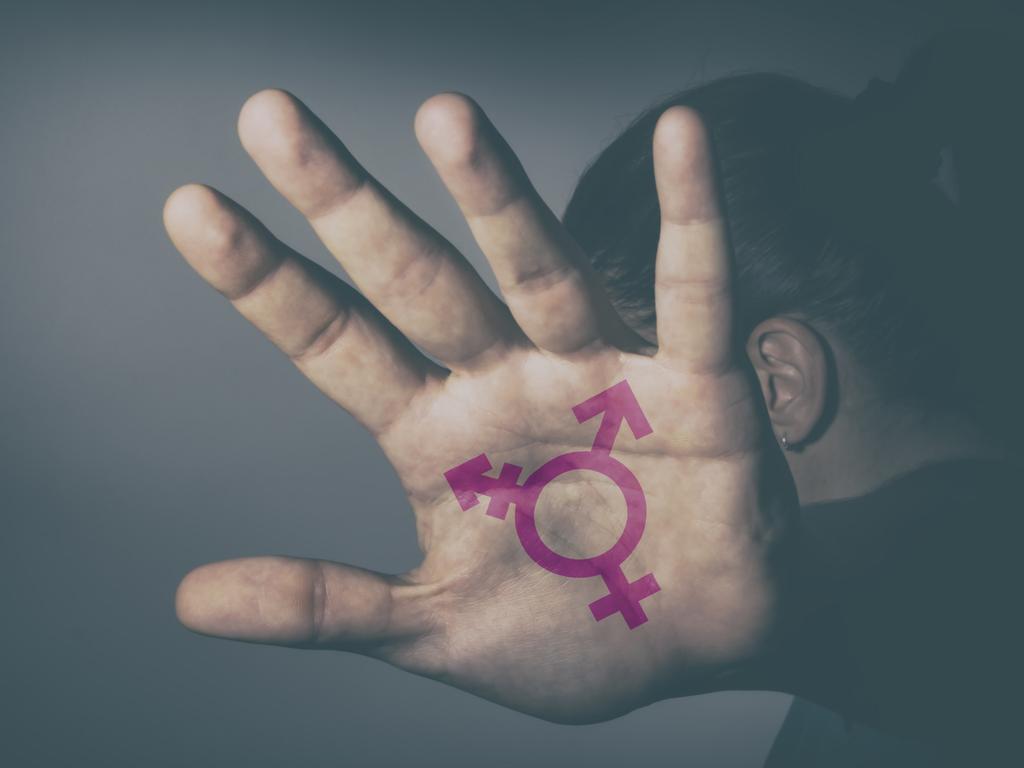Plastic surgeons call for age limit as young teenagers line up for ‘top surgery’
Leading surgeons are calling for the national medical regulator to set guidelines on gender-affirming surgery, including consideration of 18 as the age limit.

Leading surgeons are calling for the national medical regulator to step in to set “clear and specific guidelines” on gender-affirming surgery, including consideration of whether the age at which transgender adolescents are legally allowed to go under the knife should be raised to 18.
Australia is one of the most liberal countries in the world in sanctioning children under 18 to get double mastectomies, a practice that is rare but appears to be increasing despite only a handful of surgeons around the country being willing to perform such procedures.
The case of a 15-year old child in Queensland having “top surgery” has prompted Mark Ashton, a plastic surgery specialty elected counsellor to the Royal Australasian College of Surgeons and Melbourne University professor of surgery, to question the lack of regulations.
“There is no doubt gender affirming surgery is becoming significantly more mainstream surgery, with increasing demand, and the regulation hasn’t kept up,” said Professor Ashton, who serves on the Board of Training and the Council for the Australian Society of Plastic Surgeons.
“I can’t think of any circumstances in which a 15-year-old person should be electively having a double mastectomy. This is irreversible and is major surgery.
“In my opinion, because of its permanency, the surgical procedure needs to be delayed, at least until the person is 18.”
The federal government’s national virtual public health information service Healthdirect says top surgery can be performed, with parental consent, on minors over the age of 16, but “some surgeons will provide surgery to younger people in very specific situations”.
The case of the 15-year-old, which The Australian has independently confirmed, is complex and unusual. The child, whose parents both supported the surgery despite the child identifying as transgender for only about a year, posted on social media describing how they had the surgery in a day hospital after one consultation with a psychiatrist who approved the procedure.
“Fifteen in my personal opinion is too young, unless you can clearly identify and clearly document a well-considered psychiatric and medical assessment and specific recommendation over a prolonged period of time,” Professor Ashton said
“As adults looking back on our youth, those ages of between 12 and 18 were accompanied by a whole series of emotional turmoil, self-reflection and-self doubt. This is permanent, irreversible surgery that cannot be undone.
“I don’t believe there is adequate and due consideration in some of these cases as to whether this is a transient, emotional, psychological feeling, or is this indeed a permanent feeling, that is, the person truly is transgender.
“Any decision to embark on gender affirming surgery must be established over time, by a multidisciplinary team comprising a diversity of medical experts.
“It is really incumbent upon the federal health minister, state ministers and the national regulatory body, AHPRA, to ensure that these patients, our children, are protected from less scrupulous unethical practitioners who see transgender surgery as yet another opportunity to make money.
“We need clear and specific guidelines as to how the decision to proceed to gender affirming surgery is made, and by whom.”
Medical Board of Australia chairwoman Anne Tonkin said issues around gender affirming surgery were “complex and polarising”, especially when they involved children. “We are closely monitoring ongoing community discussion of these sensitive and complex issues,” she said. “As always, we will take our lead from the voice of the people, through parliament and legislation.”
Dr Tonkin said all doctors were bound by a medical practice code of conduct that makes explicit the standards of ethical and professional conduct expected of them.
Professor Ashton is one of three breast reconstruction surgeons to whom The Australian has spoken to confirm that as the medical transition of young people has grown more common in recent years, surgeons are now being approached by people who want to reverse surgical procedures. This appears to be a manifestation of the concerns of cautious doctors such as those at The Children’s Hospital at Westmead’s gender clinic that a proportion of teenagers who present wanting to transition gender will later desist or detransition.
Trans advocates, who claim double mastectomies on minors almost never happen, say detransition rates are minuscule.
“If you’re banning Botox or fillers fundraisings but saying gender reassignment surgeries are OK, I think we’ve got a problem,” said one surgeon.
“I would certainly think this incredibly invasive and life-changing surgery needs to have decisions made by adults. This surgery is very disfiguring, it’s irreversible and it needs to be put into that context – it’s a major, major, major change, and it shouldn’t be being offered to children.”
There is no public data on how many people are getting gender reassignment surgery, with double mastectomies being performed under the same Medicare item number as cancer surgery.
Australian Society of Plastic Surgeons president Nicola Dean said doctors in the field were pushing for a separate Medicare item number for the procedure. Associate Professor Dean said the age issue for getting surgery was the subject of significant active debate around the world among plastic surgeons. “I think the real issue here is that there are many people in Australia with gender incongruence who are currently left outside of the healthcare system and who have difficulty accessing the care they need,” Professor Dean said.
“In medicine there are often complex factors to consider to decide when a patient has developed capacity to consent to procedures.
“I think it is wrong to use the very private matter of the medical treatment of a child as a vehicle for very public debate. In all areas of surgery, we come across cases where there are exceptional circumstances.”
Professor Dean said she agreed with Professor Ashton that evidence-based protocols of care were critically important.
“It is clear from clinical research, both in Australia and all around the world, that people with gender incongruence have a high risk of problems with mental health and gender dysphoria,” Professor Dean said.
“It is also clear from the literature that medical and surgical treatment can be very effective in improving the health of these individuals.
“Not everyone with gender incongruence needs medical treatment. But some do. Some countries have very developed protocols of care, whereas Australia’s are still developing.
“The WPATH guidelines are a good starting point, but more Australia-specific protocols on surgical treatment will evolve and be helpful for health professionals and patients. It is important that these are patient-centred and based on the medical evidence.
“I think what is important is that for people to gain a diagnosis of gender incongruence, it has to be marked and persistent. There are clear diagnostic criteria.”








To join the conversation, please log in. Don't have an account? Register
Join the conversation, you are commenting as Logout